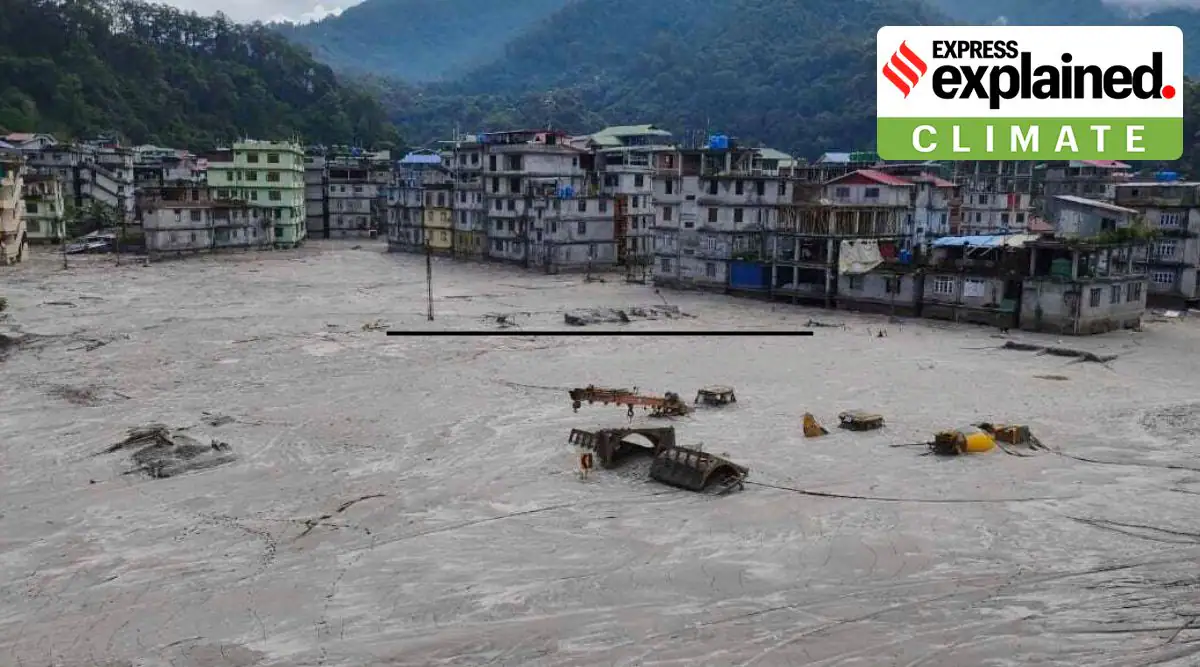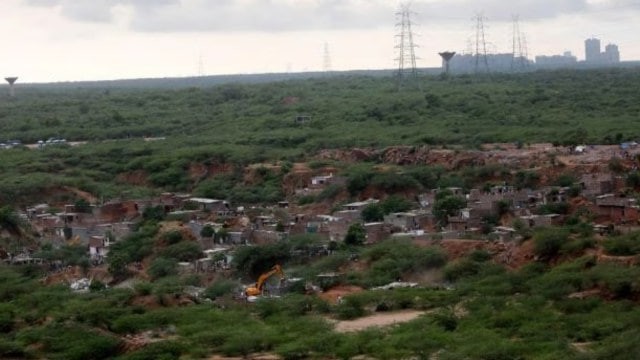





Copyright infringement not intended
Picture Courtesy: Indian Express
Context: India's National Framework for Climate Services, led by the India Meteorological Department (IMD), aims to establish a comprehensive platform for climate information users.
Details
|
Global Framework for Climate Services (GFCS) ●The Global Framework for Climate Services (GFCS) is a significant initiative established to enhance the production and utilization of climate information and services worldwide. ●It was announced during the third World Climate Conference in 2009, held in Geneva. It is primarily led by National Meteorological and Hydrological Services (NMHS) in individual nations. ●It operates as a global partnership involving governments and organizations. Its primary objective is to facilitate collaboration between researchers and users of climate information and services. The goal is to enable informed and actionable decision-making for long-term improvements related to climate change. ●It aims to produce high-quality data from national and international databases concerning crucial weather parameters like temperature, rainfall, wind, soil moisture, and ocean conditions. ●It creates long-term historical averages of these parameters, along with maps, risk and vulnerability analyses, assessments, and long-term projections and scenarios. GFCS operates through five major components: ●Observations and Monitoring: Involves gathering data from various sources to monitor climate-related parameters. ●Research: Conducts scientific research to better understand climate patterns and phenomena. ●Modelling and Prediction: Utilizes models to predict future climate patterns based on current and historical data. ●Climate Services Information System: Develops systems to store and manage climate-related information efficiently. ●User Interface Platform and Capacity Building: Provides a platform for users to access climate information and offers training and capacity-building programs. GFCS focuses its efforts on specific sectors, including: ●Agriculture and Food Security: Providing climate information to aid agricultural planning and food security initiatives. ●Energy: Assisting the energy sector in adapting to climate-related challenges and optimizing resources. ●Health: Offering climate data to help in health-related decision-making and preparedness for climate-related health risks. ●Water: Managing water resources effectively by providing information on precipitation patterns and water availability. ●Disaster Risk Reduction: Assisting in disaster preparedness and risk reduction by providing relevant climate data and predictions. |
Key Features of the National Framework for Climate Services (NFCS)
|
Seamless Working Platform |
●NFCS aims to create a seamless working platform that facilitates the smooth flow of climate-related information and services. This platform ensures that climate data, forecasts, and analyses are readily accessible to users, enabling them to make informed decisions and take appropriate actions. |
|
Targeted Sectors |
●NFCS focuses on several key sectors critical to the Indian economy and society, including agriculture, energy, disaster management, health, and water resources. By concentrating on these sectors, NFCS aims to help these industries mitigate climate risks effectively. For example, in agriculture, climate services can assist farmers in making planting and irrigation decisions based on weather patterns and climate projections. |
|
Customization |
●Unlike the Global Framework for Climate Services (GFCS), NFCS is tailored to address India's specific weather patterns and the unique needs of its diverse stakeholders. This customization ensures that the climate information provided is relevant, accurate, and actionable for the Indian context. Understanding India's distinct climate challenges allows NFCS to offer targeted solutions to various regions within the country. |
|
Nodal Agency |
●The IMD serves as the nodal agency responsible for formulating and implementing the NFCS in India. As a trusted and established meteorological organization, IMD leverages its expertise and infrastructure to gather, analyze, and disseminate climate-related information. This central coordination ensures a cohesive approach to climate services implementation across different sectors. |
|
Expansion and Adaptability |
●NFCS is designed to be adaptable and responsive to evolving needs. It allows for the incorporation of additional sectors such as transport and tourism based on their relevance and the emerging challenges posed by climate change. This adaptability ensures that the framework remains relevant in the face of changing climate patterns and societal demands. |
Why is NFCS Significant?
Bridging Gaps
Enhancing Accuracy
Tailored Solutions
Adaptation and Preparation
Implementation of NFCS
Challenges in NFCS Implementation
Way Forward
Conclusion
Must Read Articles:
Climate Finance: https://www.iasgyan.in/daily-current-affairs/climate-finance
|
PRACTICE QUESTION Q. How can the National Framework for Climate Services be effectively implemented to address climate challenges and promote resilience in communities, considering the various obstacles such as data gaps, technological limitations, and policy integration complexities? |







© 2025 iasgyan. All right reserved